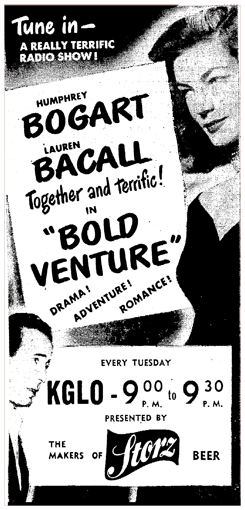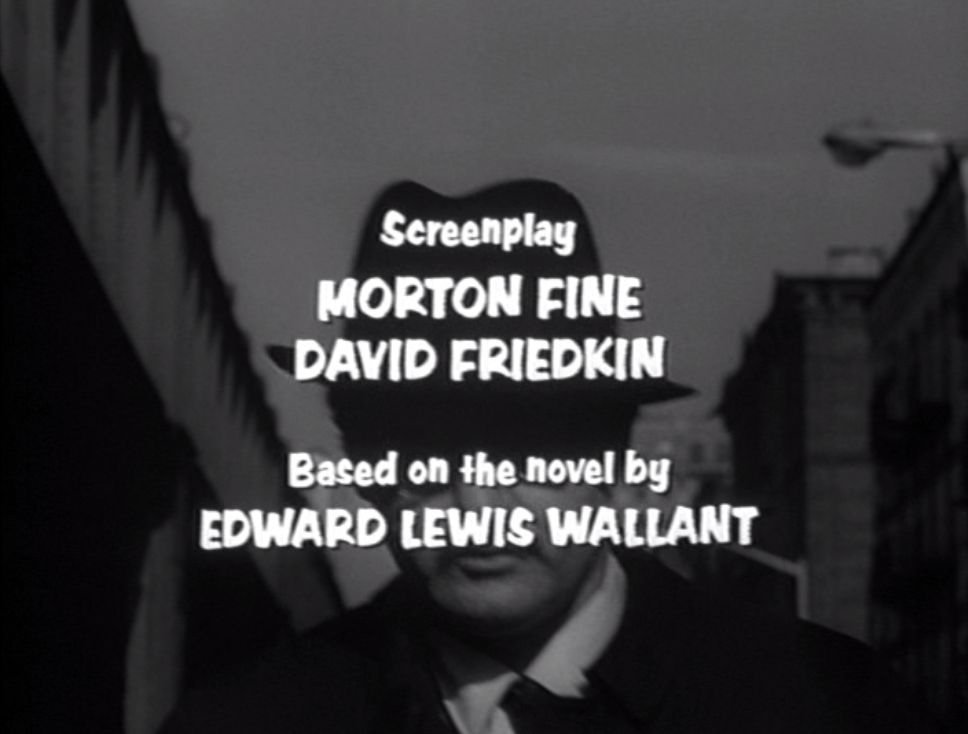Happy Birthday, Morton Fine!
Posted by Ivan G. Shreve, Jr. on Dec 24th 2015
Before embarking on a rewarding career as a radio, television and movie writer, Morton S. Fine—born a Christmas Eve baby in Baltimore, MD on this date in 1916—was a “jack-of-all-trades.” He worked in an advertising agency, toiled in a bookstore, and punched a card at an aircraft factory (before the work at that factory inspired him to join the Army Air Force in 1942). Though he had previously graduated from St. John’s College in Annapolis before his hitch in the service, he returned to the “halls of ivy” (the University of Pittsburgh) upon being mustered out in 1944 and earned a Master’s in English. Mort tried to put that degree to use as a writer for magazines but had no success in that field…causing him to decide that he ought to be in California instead. He found work as a radio scribe on shows like Let George Do It, and then teamed up with David Friedkin (who was four years his senior) in 1948 to form one of the medium’s most fruitful writing partnerships. Together, they delivered scripts for such series as The Front Page and The Philip Morris Playhouse.
Fine and Friedkin played a large role in the success of Broadway’s My Beat, an Elliott Lewis-produced crime drama that was heard over CBS Radio from 1949 to 1954. Broadway’s My Beat established the template for the gritty, realistic cop show that many (including myself) associate with Dragnet—even though Beat premiered before Jack Webb’s seminal police procedural by several months. Beat originated in New York from February to June of 1949 in its first season, and then moved to the West Coast. The series showcased first-rate acting from its star, actor-announcer Larry Thor (as Detective Danny Clover), and a superlative supporting cast that included Charles Calvert (as Sergeant Gino Tartaglia) and Jack Kruschen (Detective Muggavan). Mort and David’s scripts for the series were an interesting blend of introspective prose and hard-hitting social commentary (they often tackled controversial subjects like juvenile delinquency and anti-Semitism) and were praised by radio historian Fred MacDonald as “a striking example of a writing flair which was generally absent from radio.”
Morton Fine and David Friedkin also contributed scripts for Elliott Lewis’ directing-producing efforts on Suspense and On Stage, and in addition set the tone for the puckish black humor that became the hallmark of the offbeat anthology known as Crime Classics. Classics presented historical tales of murder and mayhem laced with a very dry wit; Messrs. Fine and Friedkin once commented about their macabre efforts: “You can afford to laugh at murder as long as you’re safely a century or so away from it…the killers we make fun of are good and dead. If they weren’t, we know a pair of writers who would be.” Though Crime Classics had but a brief sustained run over the CBS Radio Network (from June 15, 1953, to June 30, 1954), it remains a firm favorite with old-time radio fans today.

Other series on which Fine and Friedkin turned in scripts include Escape, The Hallmark Hall of Fame, The Line Up, Pursuit, Romance, San Francisco Final, and Sara’s Private Caper. The writing duo also had a hand in the blueprint of what would eventually become radio’s Gunsmoke (they penned the 1949 audition script, “Mark Dillon Goes to Gouge Eye”) after CBS President William S. Paley suggested a series that would echo “Philip Marlowe in the Old West.” In addition, Fine and his partner can take a little credit in luring Humphrey Bogart to a stand-up microphone. Long reluctant to commit himself to the rigors of a live weekly series, Bogie liked Fine and Friedkin’s pitch for Bold Venture, an adventure program that would co-star Mrs. Bogie (Lauren Bacall) and allow them to record 3-4 shows in advance while he and Baby concentrated on their film careers. Bold Venture would go on to become one of the Fredric W. Ziv radio syndication company’s biggest hits, awarding the husband-and-wife team a princely sum of $4,000 per episode.
Like many of their radio brethren and sistren, Fine and Friedkin decided to try their luck writing for that newfangled upstart television…and were quite successful for the most part, contributing to the likes of Climax! and Suspense, and later shows such as Bat Masterson, The Aquanauts, and Bold Venture (brought to TV in 1959 with Dane Clark and Joan Marshall). One of their interesting “failures” was an anthology entitled Frontier, which tried to do for the Old West what the duo had previously done for “murder-throughout-the-ages” on Crime Classics. Episodes from the series netted the duo Emmy and Writers Guild of America nominations (they lost both); still, Fine was able to add “producer” to his resume with Frontier, which led to future gigs on The Virginian, Breaking Point, and The Alfred Hitchcock Hour.

Morton Fine and David Friedkin’s most successful television collaboration was I Spy, the tongue-in-cheek espionage series starring Robert Culp and Bill Cosby as a pair of globetrotting secret agents masquerading as a tennis amateur (Culp) and his trainer (Cos). Though nominated three times as Outstanding Dramatic Series for every season it was on the air (Fine and Friedkin were the producers), I Spy was only Emmy-lucky for Bill Cosby (who scored a hat trick as Outstanding Continued Performance by an Actor in a Leading Role in a Dramatic Series). Morton and partner David did get a nice consolation prize in Writers Guild of America honors for their screenplay for The Pawnbroker (1965), which still remains one of the important films from that era.
By his lonesome, Morton Fine contributed scripts (as Mort Fine) to such 1970s TV favorites as Barnaby Jones, Kojak, and The Streets of San Francisco. With partner David Friedkin, Fine attempted a few more series like The Most Deadly Game (which the two created) and Bearcats!; their last collaboration was a short-lived cop drama starring Paul Sorvino as Bert D’Angelo/Superstar (I am not making that title up) before Friedkin’s passing in 1976. Morton Fine busied himself in the meantime with writing for TV movies and feature films like The Greek Tycoon (1978) and Cabo Blanco (1980) before his death in 1991.

Here at Radio Spirits, we’re pleased to honor Morton Fine’s birthday with collections featuring his rewarding partnership with David Friedkin. We have plenty of Broadway’s My Beat on hand, in the form of Murder, Neon Shoals, and Great White Way. The duo can also take credit for the content on Crime Classics, and its sequel The Hyland Files. But be sure to check out Mort’s fine work on the likes of Escape (Escape Essentials, Escape to the High Seas), The Line Up (Witness), Suspense (Ties That Bind), and San Francisco Final (on our Stop the Press! compilation) as you help yourself to ice cream and cake!

